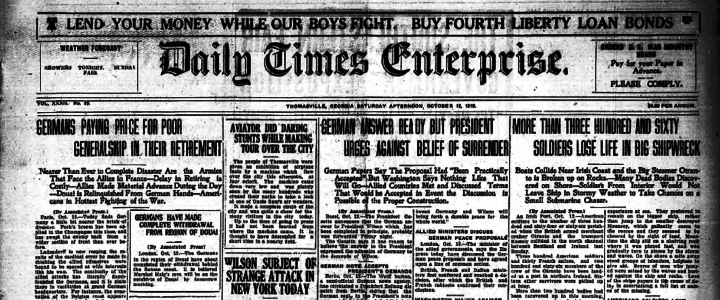On September 25th, 1918, an estimated 130 men from Georgia lost their lives in a tragic accident as a violent wave caused a crash between the Otranto and Kashmir, two ships carrying troops to England. The crash caused the Otranto to veer off course and sink. The small town of Nashville, Georgia lost 20 citizens in the accident. Residents of Nashville erected a monument to the victims of the disaster after the war. The front page of the Daily Times Enterprise on October 12, 1918, covers more WWI topics than the Otranto sinking. The front page offers general war news and, in the left corner, an ad for war bonds and stamps.
Daily Times Enterprise Newspaper, October 12, 1918


